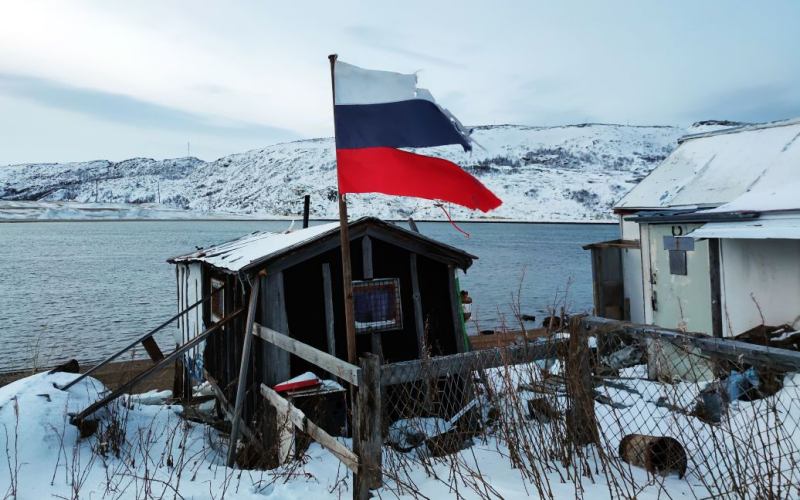
The West and Russia have limited cooperation in the Arctic, despite cooling relations and a full-scale war against Ukraine.
Despite deep frozen relations between Russia and Western countries after the full-scale Russian invasion of Ukraine in February 2022, the West still has limited cooperation with Moscow through the Arctic Council.
Reuters writes about this.
When Arctic countries simulated a large oil spill during exercises off the northern coast of Norway in March, Russia also took part. This was a rare sign of cooperation between Moscow and the West, which emphasizes the special status of the polar region.
“We had good communication with all states, including Russia, the Russian Federation also offered help, and we accepted it (Russia simulated sending two ships for training – ed.),” said Ole Christian Bjerkemo, head of the Arctic Council working group on prevention issues. , Emergency Preparedness and Response, who led the exercise.
The Arctic Council includes all eight Arctic countries—the United States, Canada, Norway, Finland, Sweden, Denmark, Iceland, and Russia—and deals with issues ranging from pollution and economic development to search and rescue missions.
Seven Western countries that are members of the NATO military alliance have suspended cooperation with Moscow after its invasion of Ukraine. A third of the 130 projects of the Council for Direct Russian Participation have been put on hold. Diplomats say shutting down the Rada as a whole would jeopardize Arctic security and undermine efforts to combat climate change in a region where warming is occurring four times faster than the rest of the world.
Norway, which assumed a two-year parliamentary presidency last May, has said it would like to avoid such an outcome.
“The main goal of the Norwegian presidency was to make sure that the structure survives, because we cannot afford to lose it,” Norwegian Deputy Foreign Minister Maria Varteressian said in an interview with Reuters.
The council, founded in 1996, has long been seen as a key arena for cooperation between the West and Russia, producing binding agreements on environmental protection and conservation. Russia makes up about a third of the entire Arctic region and accounts for about 70% of economic activity in high latitudes.
“We knew this presidency would be extremely complex and difficult,” said Norway's Morten Höglund, head of a group of senior Arctic officials now tasked with balancing relations between the council's Western members and Russia.
At the start of the war in Ukraine, many polar experts proclaimed the end of Arctic “exceptionalism,” a Cold War concept that characterizes the Arctic as such a unique place due to its geography and history that it is not prone to certain geopolitical tensions and therefore is an arena for peaceful cooperation.
Some recent events have increased the pessimism of experts. Last September, Russia withdrew from the Barents Euro-Arctic Council, another Arctic regional forum. And in February, Russia suspended annual voluntary contributions to the Arctic Council, citing the need to resume “real work” with the participation of all member countries.
However, in February, the Arctic Council Secretariat said it would resume meeting of working groups on environmental and security issues in a virtual format with Russia, and some analysts saw this as cause for hope.
“What we are seeing during Norway’s presidency shows that cooperation is still possible,” said Pavel Devyatkin, a Moscow-based researcher at the American think tank the Arctic Institute.
The Council's working group monitoring the region's climate and environment will soon release three reports – on Arctic climate change, microplastic pollution and radioactivity – that were delayed by the war in Ukraine. The radioactivity report required significant input from Moscow because it had a Russian co-author and contained a large amount of Russian data, said Rolf Rodven, executive secretary of the Arctic Monitoring and Assessment Program working group.
Norway and Russia share an Arctic border and cooperate on practical issues such as fisheries management in the Barents Sea – work that has been ongoing since the invasion of Ukraine. Officials say pragmatic cooperation on a technical or scientific level may be the right solution, but contacts at the political level in the Rada are unthinkable while there is a war.
“We must adapt to the new reality. We must recognize… that this is a different reality than four years ago. It will certainly not be anything like the one that was before,” the Norwegian added Morten Höglund.
Related topics:
More news

